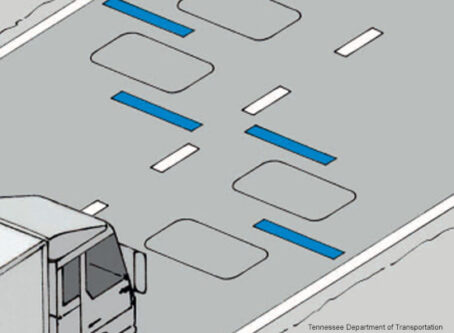Court denies four of 19 claims in John Christner Trucking lawsuit
A federal judge in Oklahoma recently threw out four causes of action in a class action wage lawsuit against John Christner Trucking but allowed the other 15 to move forward.
The Sapulpa, Okla.-based trucking company is accused of misclassifying its truck drivers as independent contractors and violating federal and California labor laws. John Christner Trucking’s attorneys filed a motion to dismiss the claims, arguing that federal law preempted all of the plaintiffs’ claims under California law and that the other claims suffered various deficiencies.
The U.S. District Court for the Northern District of Oklahoma submitted an opinion on Nov. 30, siding with John Christner Trucking in four instances while denying all other parts of the motion.
Originally filed in California in 2017, the lawsuit claims that plaintiff Thomas Huddleston and the other truckers were employees and should have been paid as such. The original complaint alleged that truck drivers for John Christner Trucking often worked 70-100 hours per week while being paid less than $500. The lawsuit also claimed that it wasn’t uncommon for drivers to receive negative paychecks.
The 19 causes of action in the lawsuit:
- failure to pay wages and minimum wage in violation of the Fair Labor Standards Act.
- failure to pay minimum wage in violation of the California Labor Code.
- failure to pay for all hours worked in violation of the California Labor Code.
- failure to authorize and permit and/or make available meal and rest periods in violation of the California Labor Code.
- failure to reimburse for necessary business expenditures in violation of the California Labor Code.
- failure to maintain proper payroll records in violation of the California Labor Code.
- failure to provide accurate itemized wage statements in violation of the California Labor Code.
- coerced purchases in violation of the California Labor Code.
- willful misclassification in violation of the California Labor Code.
- waiting time penalties pursuant to the California Labor Code.
- unlawful business practices in violation of the California Business and Professions Code.
- unlawful sale of business opportunities.
- deceptive and unfair trade practices in violation of the Oklahoma Consumer Protections Act.
- deceptive trade practices in violation of the Oklahoma Deceptive Trade Practices Act.
- constructive fraud and negligent misrepresentation.
- unjust enrichment.
- additional unlawful business practices in violation of the California Business and Professions Code.
- statutory penalties pursuant to the California Labor Code.
- additional statutory penalties pursuant to the California Labor Code.
The court dismissed the eighth, ninth, 14th and 16th causes of action because there is no “private right of action.”
John Christner Trucking also argued that the Federal Aviation Administration Authorization Act of 1994 preempts all of Huddleston’s claims under California state law. The FAAAA generally prohibits the states from enacting any “law, regulation or other provision having the force and effect of law related to a price, route, or service of any motor carrier … with respect to the transportation of property.”
“JCT does not identify a specific statutory provision or common-law rule that it contends is preempted by the FAAAA,” the court wrote. “Rather, JCT argues more broadly that the FAAAA preempts Huddleston’s use of state law to alter the terms on which he agreed to transport property.”
The court cited Supreme Court precedent in regards to the preemption clause.
“The Supreme Court has cautioned that ‘the breadth of the words related to does not mean the sky is the limit,’” the district court wrote.
“The California Labor Code provisions cited in Huddleston’s complaint are not directed specifically toward motor carriers. Instead, they are broad background rules applying to employers across numerous industries.”
John Christner Trucking’s motion to dismiss the causes of action related to the FAAAA preemption were denied.









